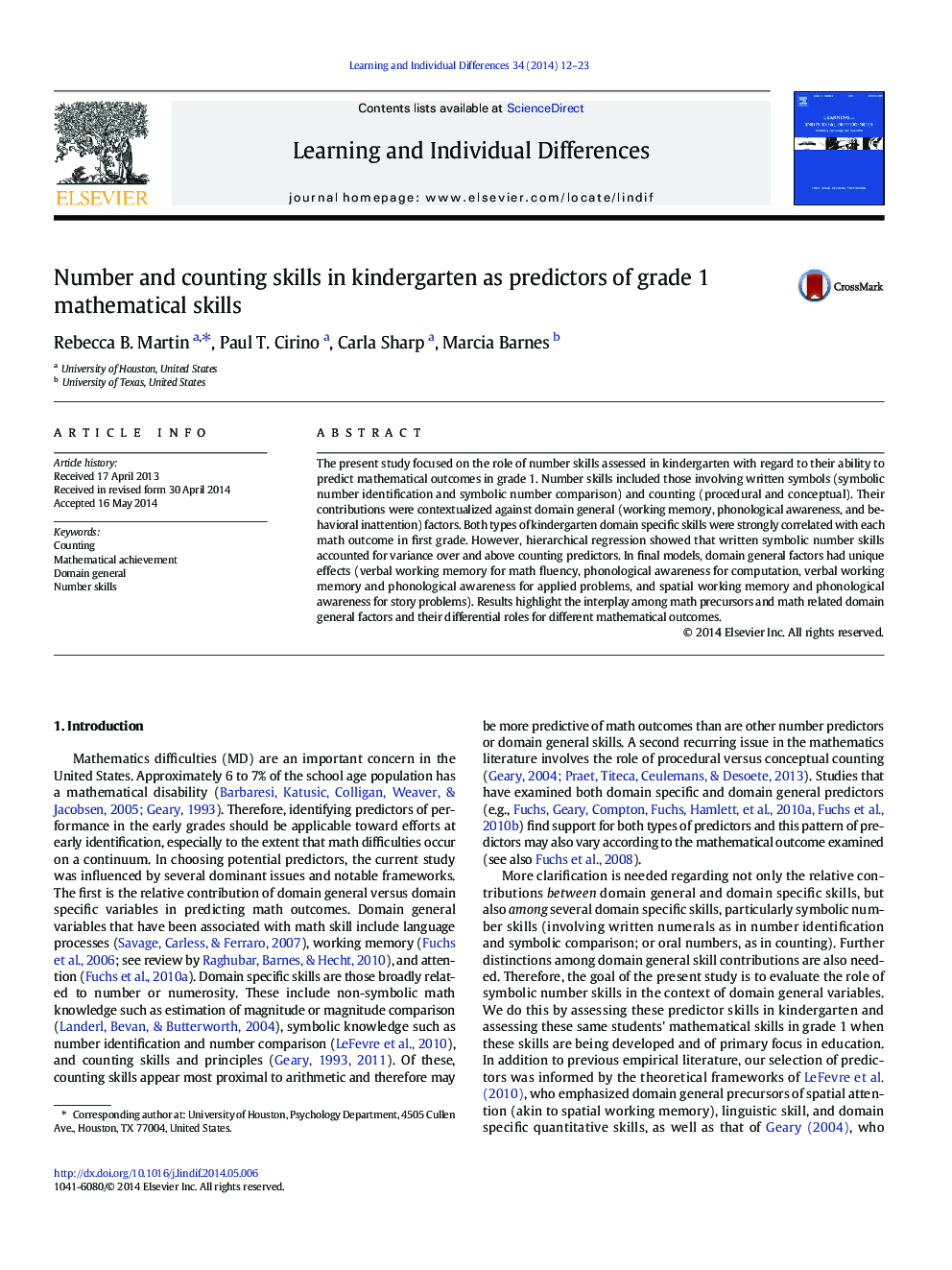| Article ID | Journal | Published Year | Pages | File Type |
|---|---|---|---|---|
| 364776 | Learning and Individual Differences | 2014 | 12 Pages |
•Both types of counting skills are strongly related to math outcomes.•Patterns of counting do not convincingly distinguish between math outcomes.•Symbolic number skills account for more variance in outcomes than counting.•Each outcome had distinct predictors; comprehensive outcomes have a wider range.•The relationship between symbolic number and counting is likely bidirectional.
The present study focused on the role of number skills assessed in kindergarten with regard to their ability to predict mathematical outcomes in grade 1. Number skills included those involving written symbols (symbolic number identification and symbolic number comparison) and counting (procedural and conceptual). Their contributions were contextualized against domain general (working memory, phonological awareness, and behavioral inattention) factors. Both types of kindergarten domain specific skills were strongly correlated with each math outcome in first grade. However, hierarchical regression showed that written symbolic number skills accounted for variance over and above counting predictors. In final models, domain general factors had unique effects (verbal working memory for math fluency, phonological awareness for computation, verbal working memory and phonological awareness for applied problems, and spatial working memory and phonological awareness for story problems). Results highlight the interplay among math precursors and math related domain general factors and their differential roles for different mathematical outcomes.
